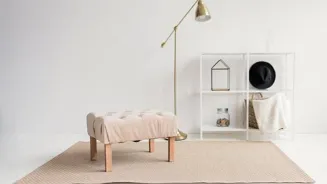Discover the transformative power of minimalism in Indian homes. Uncover 8 steps to declutter and find joy in simplicity
In the hustle-bustle of Indian life, where festivals bring joy, weddings are grand
affairs, and our homes often reflect the richness of our culture, it's easy to accumulate things. From inherited sarees and kitchen gadgets to gifts and souvenirs, our spaces can quickly become overflowing.
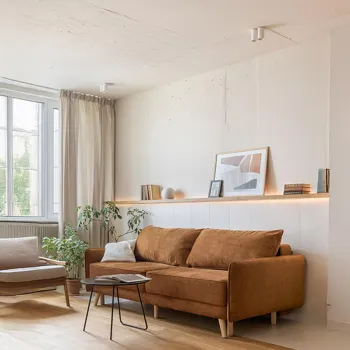
But what if there was a way to embrace simplicity, create calm, and find more joy with less? Enter the art of minimalism. It’s about being intentional about what you own, focusing on experiences rather than possessions, and creating a space that nurtures your well-being.
It’s not about deprivation, but about conscious consumption and creating a life filled with things that truly matter. This art isn't just a trend; it’s a philosophy that can change the way you live, bringing peace and clarity to your everyday life in India.
Minimalism, at its heart, is a conscious choice to live with less. It's about intentionally owning only things that add value to your life, whether through utility, beauty, or emotional connection.
This doesn't mean getting rid of everything you own but rather being critical of what you bring into your home and life. For many Indians, who grow up in cultures where hoarding is the norm, letting go can be a challenge.
However, minimalism offers a path to breaking free from the cycle of consumerism and creating space for what truly matters - your relationships, your community, your passions, and your personal growth. Imagine a space that is clutter-free, easy to maintain, and filled only with items that you love.
Sounds amazing, right? Minimalism offers a framework for achieving this. It is not about stark emptiness, but about thoughtful curation. It’s about surrounding yourself with the things that spark joy and contribute to your well-being.
Ready to embark on a journey towards a clutter-free life? Here are eight simple steps you can take to embrace the art of minimalism, tailored for the Indian context:
Start Small, Think Big: Don’t try to declutter your whole house in one day. Begin with a single drawer, a shelf, or a corner of a room. The key is to start small so you don't feel overwhelmed. As you declutter each space, ask yourself questions like "Do I use this regularly?", "Does this item bring me joy?", and "If I didn't already own this, would I buy it today?". Be honest with yourself and let go of anything that doesn't serve a purpose or bring you happiness.
Imagine you are decluttering your cupboard. As you are going through each item, ask yourself a few simple questions: "Have I worn this in the last year?", and "Does it fit me well?". If the answer is 'no' to either of these then it is time to let it go so it is not taking up space.
The One-In, One-Out Rule
This is a game-changer when it comes to preventing future clutter. Every time you bring something new into your home, commit to getting rid of something similar. Buying a new kurta? Donate an old one. Getting a new kitchen gadget? Find a similar item to give away.
This helps maintain a balance and prevents things that are no longer needed from accumulating. Think before purchasing each item, like a dress for a wedding that you will possibly not wear again.
Digital Declutter
Minimalism isn’t just about physical possessions. It extends to your digital life as well. Unsubscribe from unnecessary email lists, delete old files and photos, and organize your digital folders. A clear digital space can lead to a clearer mind. You might think this is not important but it is.
A clear digital space is also of prime importance. Think of the number of photos or items you have on your phone and deleting items can free up space for memories.
Embrace the KonMari Method
This involves gathering all items of a specific category (clothes, books, etc.) in one place and then going through each item, asking yourself if it "sparks joy." If it does, keep it. If not, thank it for its service and let it go.
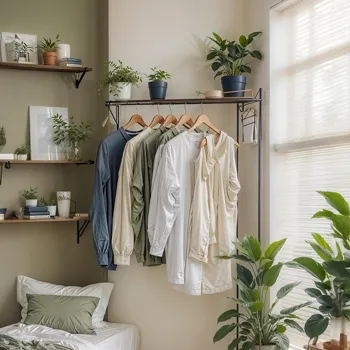
This method encourages you to be mindful of your belongings and what they mean to you. Focus on what brings you happiness, not what you think bringing you happiness.
Find New Homes for Your Unused Items
Don’t just throw away perfectly good items. Donate them to charities, give them to friends or family who might need them, or sell them online. Giving your items a new life is a more sustainable and meaningful approach to decluttering. There are many places to give these items away.
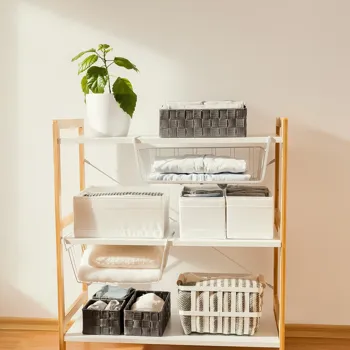
There are many charities who will be happy to have them.
Challenge Your Consumer Habits
Before making a purchase, pause and ask yourself if you really need it. Do you already have something similar? Can you borrow it from a friend or neighbor? Delaying gratification and being mindful of your spending habits can prevent unnecessary accumulation.
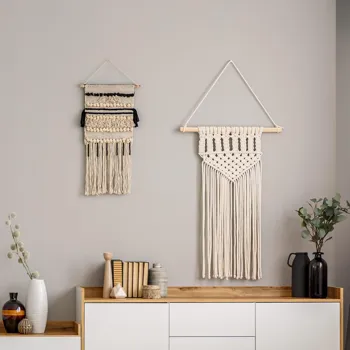
Buying 10 items at once is not always needed. Focus on buying items when you need them so they are not wasted and taking space.
Designate spots for items to keep home organized
Create designated spots for certain items Ensure that all items in your home has a home. This is where the item is always kept. Ensuring that you keep all items in their place is a good step to keep things clean.
Ensure that items such as keys, wallets, books, remotes etc are all kept in an appropriate place.
Practice Gratitude
Minimalism is not just about getting rid of things; it's also about appreciating what you have. Take time to appreciate the items you choose to keep and the value they bring to your life. When feeling unfulfilled take time to practice gratitude for what you have.
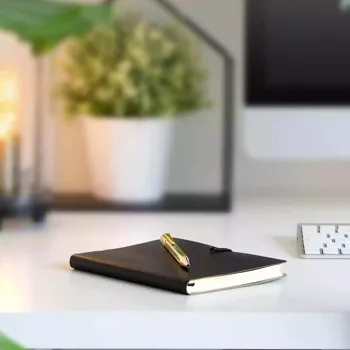
This could involve starting a journal and expressing gratitude.
Minimalism in India isn't about rejecting your cultural heritage or traditions. Instead, it's about consciously curating a life that reflects your values and priorities. It's about creating a home and a life that are both beautiful and functional and allows you to focus on what truly matters. It's about finding joy in what you have and letting go of what no longer serves you. It is about consciously consuming items for a better life. Minimalism is about creating a better life for yourself.
The benefits of embracing minimalism extend beyond a clutter-free home. It can lead to reduced stress, increased productivity, improved relationships, and a greater sense of contentment. When you are not constantly surrounded by clutter, you get to focus your attention on things better.
When you focus on your attention, you are more likely to be productive. In a world that constantly tells us to buy more, minimalism offers a refreshing alternative: a path to finding true wealth in simplicity and intentionality.
It can lead to reduced stress because you are putting less on keeping a lot of items. Focus on decluttering items you do not use.
AI Generated Content. Glance/InMobi shall have no liability for the content